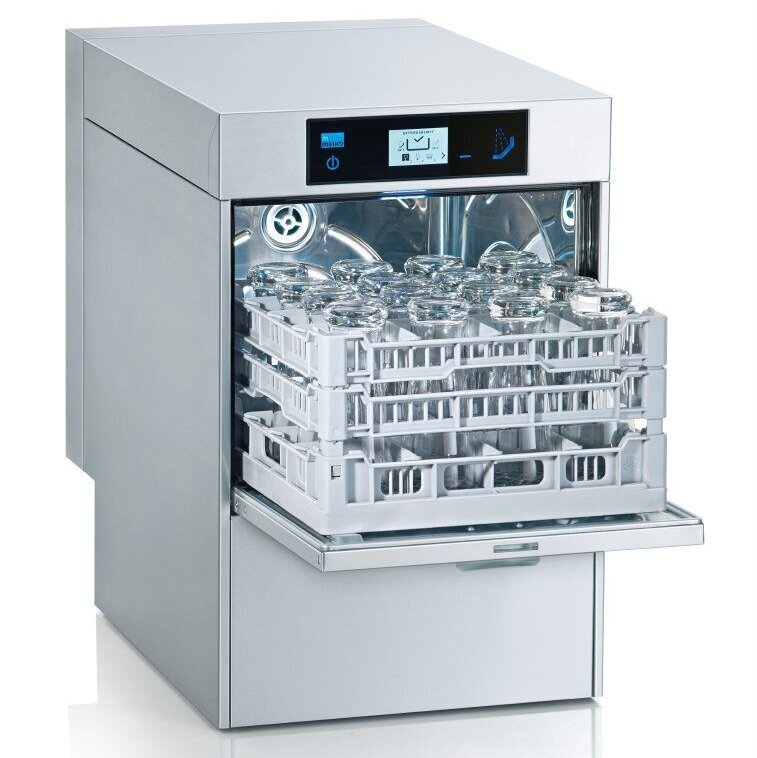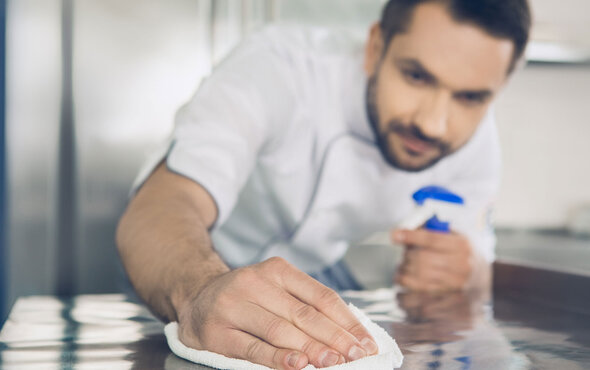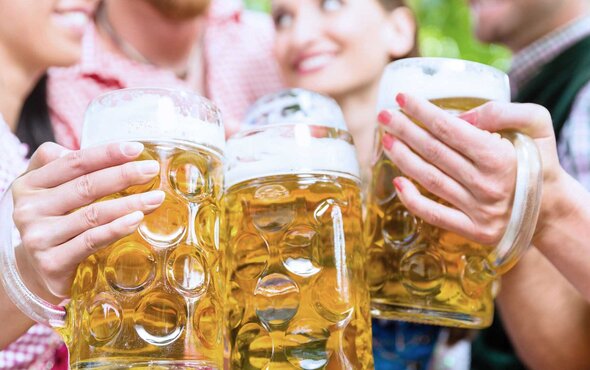Good weather draws people outside. We all enjoy sitting in the sun and making the most of the fresh air – it does body and soul good. Spending time in nature is the best way to replenish our energy, or the other option is to spend time socialising in the outdoor area of a pub or restaurant – one that caters to your every need, of course. These moments of pleasure have always brought people together and they are best enjoyed outdoors. That's when they feel just right.
For the restaurant or pub to get it just right, there must be a focus on cleanliness and hygiene both indoors and out. That is partly to get the atmosphere right, all the way down to the smallest detail, so that diners feel comfortable. Crucially, though, it is also to protect health. That is why commercial dealings with foodstuffs are regulated according to HACCP. Find out more by reading the box next to this article and our article, ‘What is HACCP? And why does every restaurateur need it?’
WHAT DOES HACCP MEAN?
HACCP = Hazard Analysis and Critical Control Points. The concept is to provide a tool to ensure food safety in a relatable way in food production, food service and food retail. HACCP guidelines help to detect and eliminate risks due to poor hygiene. In addition, it is useful for helping to avoid errors or – if they have already occurred – to reliably trace them.
Take a look at the following links for more information: ‘What is HACCP? And why does every restaurateur need it?’ and ‘Hidden hygiene issues in food service.’
In ‘Cheers! How to make your beer garden a success,’ we already looked at some of the positives of specialized dishwashing machines for food service. We explained why you can only achieve a perfectly draughted beers in perfectly cleaned glasses but we only briefly alluded to aspects of health. Yet, they are much more important than just the aesthetics.
The fact is that this kind of machines often used in outdoor food service rinse with cold water and that just does not get rid of all of the germs. Some of the ones that remain can even be severely harmful. To reliably kill off all germs, the wash water must be at least 70 degrees. Otherwise bacteria and other germs will make permanent homes on your glassware and dishes regardless of how much elbow grease you apply with that scrubbing brush.

MANUAL POLISHING AND PATHOGENS ON GLASSES
These will never be a problem with a commercial dishwasher, so long as it is correctly used. They wash at high temperatures and come with a range of features for the purpose. Correct usage includes requirements that kitchen staff wash their hands regularly and wear hygienic gloves when emptying the dishwasher, otherwise fresh microorganisms will immediately find their way onto the clean glasses.
That is why it is great that professional glasswashers remove the need to polish by hand. Dish towels are barely needed and they are a breeding ground for bacteria and other germs. For that reason, they must be changed on a daily basis.
Non-commercial dishwashing machines also fail when speed is of the essence: when the previous customer left lipstick smudges or fingerprints, these are not always fully removed. That kind of thing can really spoil the enjoyment of your freshly pulled pint or refreshing Prosecco. It doesn't matter if there is no real health risk. But then, how can you be certain that there aren't pathogens, too?

WE RECOMMEND INVESTING IN YOUR CUSTOMERS' HEALTH!
Professional dishwashing machines have so many advantages over non-commercial dishwashers and over unhygienic hand washing. If your establishment wants to see the extra sales you can bring in from an outdoor area in summer, then you need to be properly equipped. Not to mention that serious infringements of hygiene regulations can be severely punished.
So invest in commercial dishwashing technology! Cheers to your customers' health – for the sake of your good reputation!



